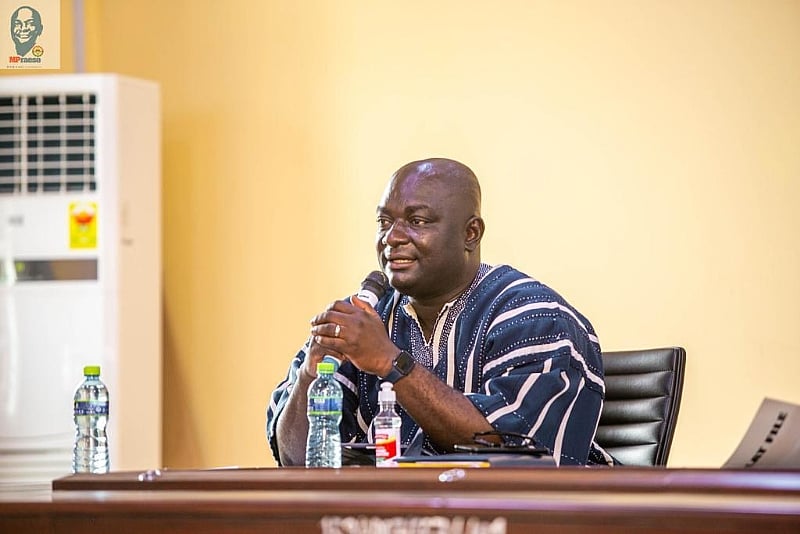The unfolding investigation into alleged corruption involving Ghana’s former Finance Minister, Ken Ofori-Atta, has sparked a debate about accountability, due process, and the appropriate exercise of prosecutorial powers. Davis Ansah Opoku, a Member of Parliament representing the ruling New Patriotic Party (NPP), has voiced his support for investigations into the allegations but also expressed reservations about the manner in which the Office of the Special Prosecutor (OSP) is conducting the probe. The OSP’s declaration of Ofori-Atta as a suspect in four significant cases, including the controversial National Cathedral Project and the Strategic Mobilization Limited (SML) revenue engagement, has heightened public scrutiny of the former minister’s actions while in office. The core of the controversy revolves around the balance between the imperative to hold public officials accountable and the equally important principle of ensuring a fair and just legal process for all individuals.
Opoku’s stance reflects a nuanced perspective within the ruling party, acknowledging the need for accountability while simultaneously urging caution and adherence to due process. He emphasizes that no individual, regardless of their position or public perception, should be exempt from facing the consequences of wrongdoing if sufficient evidence exists. However, he critiques the OSP’s approach, particularly its characterization of Ofori-Atta as a fugitive, raising concerns about potential prejudice and the observance of fundamental rights. This stance highlights the delicate balance that must be struck between pursuing justice and upholding the principles of fairness and impartiality within the legal system. It underscores the potential for prosecutorial overreach and the importance of vigilant oversight to protect individual rights during investigations.
The OSP’s investigation encompasses several complex and politically sensitive matters. The National Cathedral Project, intended to be a national symbol of faith, has been embroiled in controversy due to its funding model and alleged lack of transparency. The involvement of Strategic Mobilization Limited (SML) in revenue collection has also drawn criticism, raising questions about potential conflicts of interest and the propriety of government engagements with private entities. The inclusion of these high-profile cases in the OSP’s investigation elevates the stakes and necessitates a thorough and impartial examination of all available evidence. The public’s interest in these matters demands clarity and a commitment to uncovering the truth, regardless of where the evidence leads.
Opoku’s comments on the OSP’s handling of the case underscore the importance of maintaining public trust in institutions responsible for upholding the rule of law. He argues that the pursuit of justice must not come at the expense of due process and the fundamental rights of all individuals. The OSP’s approach, particularly its labeling of Ofori-Atta as a fugitive, raises concerns about potential prejudgment and the erosion of public confidence in the impartiality of the investigation. The perception of fairness is crucial for maintaining the integrity of the legal process and ensuring that justice is not only served but is also seen to be served.
The ongoing investigation into Ofori-Atta’s alleged involvement in corruption carries significant implications for Ghana’s political landscape. It signifies a renewed focus on accountability and transparency within government and highlights the importance of robust oversight mechanisms to prevent abuse of power. The outcome of the investigation will not only determine the fate of the former finance minister but will also send a powerful message about the nation’s commitment to combating corruption and upholding the rule of law. The public scrutiny surrounding the case serves as a reminder of the importance of ethical conduct in public office and the need for institutions to act with integrity and impartiality.
The case against Ken Ofori-Atta underscores the challenges inherent in investigating high-profile figures, particularly within the politically charged environment surrounding issues of corruption. Balancing the public’s demand for accountability with the accused’s right to a fair trial requires a careful and measured approach. The OSP’s decisions and actions will be closely scrutinized, and the outcome of the investigation will undoubtedly have far-reaching consequences for Ghana’s political and legal landscape. The nation’s commitment to upholding the rule of law and ensuring justice will be tested in the coming months as the investigation unfolds and the evidence is presented. The case serves as a critical moment for Ghana to demonstrate its commitment to transparency and accountability in public office.


